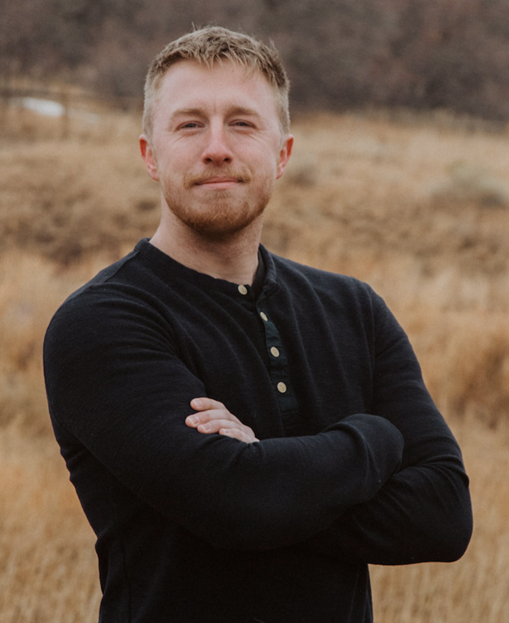Have you wanted to pray but haven’t known how? Have you ever wanted to cry to God with “groans too deep for words” (Rom 8:26)? Prayer can be a profoundly painful and emotionally complicated experience, wrought with relational and sometimes private matters.
My wife and I are currently facing a situation that has us confounded. Mainly, it’s stirred in us two vexing questions; what do we pray and how do we pray?
Is there a pathway of prayer that can guide us and ground us? Is there one that provides both theological fidelity and helps us stay in touch with the rawness of our humanity?
Thankfully, the answering is a sweet and resounding – yes. It is found in Matthew 26:36 – 44.
Following the text from vv.17-35, of chapter 26, they sing a hymn and ‘went out to the Mount of Olives’. While we don’t know what tone Jesus said these next few words, imagine Jesus saying, ‘you will all fall away because of me this night.’ (v.31b) I think we get a clue here. In the olive press (Mount of Olives) Jesus presses, out of the center of His being, His Gethsemane Prayer. He does three things: (1) Gives God His Feelings (2) Gives God His Desires (3) Gives God His Trust.
1 – He Gives God His Feelings.
Here we see Jesus become unhinderedly honest. ‘My soul is overwhelmed, very sorrowful, even to death.’ Most of us believe prayer is boring and uneventful. Here we’re drawn in, by Jesus’ posture, to bring all of who we are before all that God is. He, Jesus, offers his uncut, unedited, non-filtered inner coil to His dad (Hebrews 4:14-15). He does it all before God’s loving gaze. In realness and rawness. We have permission to bring all of our emotions to the Everlasting Dad. These moments, of giving our feelings to God, whether noble or tangled, mirror what Tim Keller says, “there are no bad emotions, only emotions gone bad.”
2 – He gives God His Desires.
In the climactic moment of His mission, Jesus says ‘Dad, I don’t think I can’. Take the cup, take the wrath of the cross. In His example we can bring our desires to our Father. The valorous and the venomous. The complex and the contradictory. The mixed bag of holy and unholy. Instead of attempting to curb desires, we can say, this desire (whatever it is) is in me, I give it over to you.
Hear the words of the – Welcoming Prayer – “I let go of my desire for security, affection, and control (while I want it so deeply) to embrace this moment……as it is.”
3 – He gives God His Trust.
Gary Breshears, Western Seminary Professor says, “our strongest desires are not our deepest desires.” The thing beneath the thing, for Jesus, was His deepest desire for His Father’s will to be done. To yield, surrender, and long for the Father’s loving purpose. You and I are not orphans or beggars. In the depths of our being we want what God wants. He has made you for Himself. You and I’s hearts are restless until we find our rest in Him. We can let go of outcomes, because we can trust our unknown futures to the Champion of our destiny. By His grace, for our good, & His glory.
Questions –
- Would you try on this Gethsemane Prayer? What stirs inside of you?
- Today, for 60-90 seconds, could you slow down to the point where you can name and unwind your feelings? Practice, once a day, or twice a day, giving God your feelings, your desires, and your trust.
- How could praying this way unhitch you from the prevailing attitude that “prayer” is inconsequential or inadequate to the needs of my life or community?
- In the song – New Wine (Hillsong) – what might God be pressing out of you, so that He might prepare you for more of Himself?

Greg Navitsky
WGA Staff
While growing up in Arlington Heights, IL, it wasn’t until the start of my senior year did I start to wonder if Jesus was worth considering. For me, it took the intellectual, communal, and personal components to come together to say – yes – to Him. I like to say He captured the restlessness of my soul and like a guitar restrung my heart with the cords of eternity and it hasn’t gone back since.
Shortly after coming to know Jesus as my greatest hope and reality, my father died. Since then, I’ve taken great comfort in Corrie Ten Boom’s words, “If you look at the world, you’ll be distressed. If you look within, you’ll be depressed. If you look at God, you’ll be at rest.”
Then, not long after that, a family member came out to me. For the first time this dimension of life – spirituality and sexuality – wasn’t an abstract concept, this was and is a person. After attending to them with grace and truth, an odd phenomenon kept happening to me, or has it been for something? Individuals would continually trust me with their questions, wounds, and curiosities about their sexuality. At this point, it’s climbed to 15+. From there, I’ve invested the better part of eight years being engaged with individuals and immersed in the dizzying array of literature on these areas of our personhood.
I’ve found Elizabeth Elliot’s words to have great bearing on our cultural moment: “Faith doesn’t eliminate questions, but faith knows where to take them.” Two prayers that have grounded and guided my life are: “I long to have faith and obedience like those I see in the Scriptures, and I long to preach the gospel to the nations.”
Those are my life’s aims. Among my love of books, reflection, and nurturing meaningful relationships, I enjoy good coffee, jazz music, golf, snowboarding, the movies, pizza (pepperoni), cooking, the mountains, and the beach as well as traveling.
I hold an MDiv from Denver Seminary, and I hope to gain more clarity on pursuing a PhD in the coming years.
I’m humbled and honored to join the WGA staff and contribute to the on-going space they are curating for every person, every story, and every beautiful and broken aspect of our human experience.
Make a Difference in Someone's Life
If you enjoy reading WGA’s blogs and would like to show your support, please consider making a donation. Where Grace Abounds is a 501(c)3 non-profit organization. The majority of services, including support groups and discipleship counseling, are provided free of charge. Your financial gifts help to cover the costs associated with offering a free program to those who seek WGA’s services.

